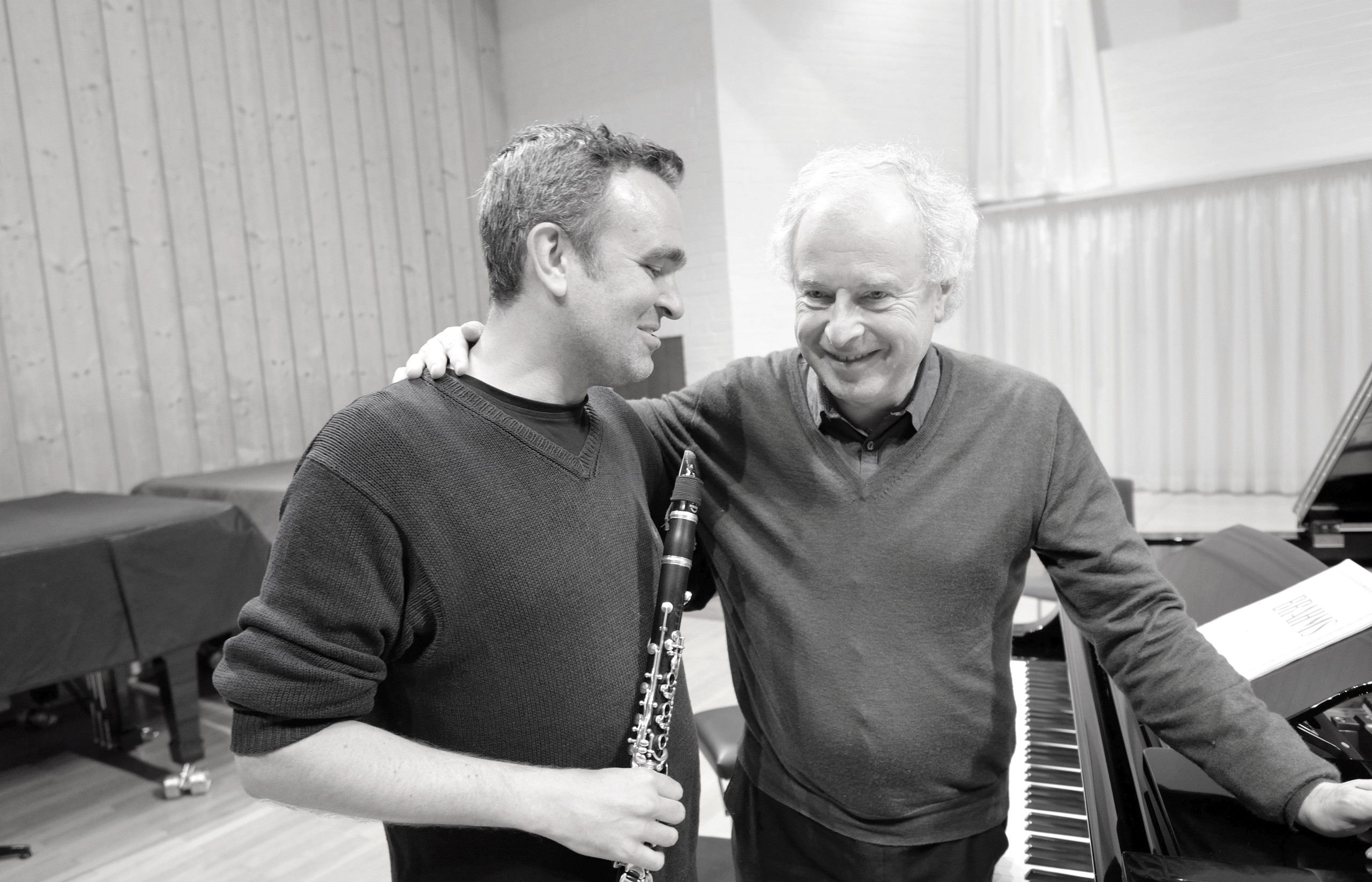For years András Schiff and Jörg Widmann have come together again and again to play these sonatas from the twilight of Brahms’s career. Both artists are firmly rooted in the Austro-German classical-romantic repertoire; they have held deep discussions of their love for Brahms, deciphered the scores, and developed readings at once intimate, emotionally fulfilled and structurally compelling.
‘Fragments of remembrance and farewell’: thus the musicians describe these sonatas. Yet at times the aura of resignation is mingled with ‘an almost youthful delight that merges miraculously with the melancholy, with the leave-taking’.
Weightless entrances, as at the opening of the Second Sonata in E-flat major (one of those works, Schiff adds, ‘that don’t begin but are already there’), bear witness to the interpretive power of these two musicians, who succeed in illuminating, with subtle hues and gossamer phrasing, moments ranging from intimacy to impulsive outbursts.
Brahms’s art of ‘composing with almost nothing at all’, of probing a limited amount of material to the nethermost detail, has always, Widmann confides, held him spellbound. The movements are tightly interwoven with thematic relations and contrapuntally compressed, and yet they unfold in the most natural way, seemingly without effort. The analytic gaze of Widmann the composer thus guides us to another special feature of the present recording.
In 2010 the two artists gave a recital at the Salzburg Festival retracing the tensions among Brahms’s late works with clarinet. For this occasion Widmann, born in 1973, wrote five piano Intermezzi for his pianist friend. They now appear here for the first time on disc. One might say that Schiff interprets his friend’s musical portrait of the aged Brahms. As Widmann once put it in an introductory talk before a recital of the pieces on our recording, he drew inspiration from Schiff’s ‘sound’ at the piano, from his ‘musicality’ and his ‘blend of musicianliness and studied reflection’. Schiff, for his part, loves Widmann’s sensitive writing for the piano and the supremely lyrical qualities of the Intermezzi.
